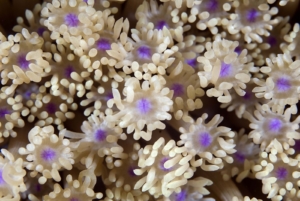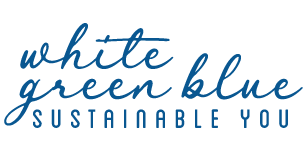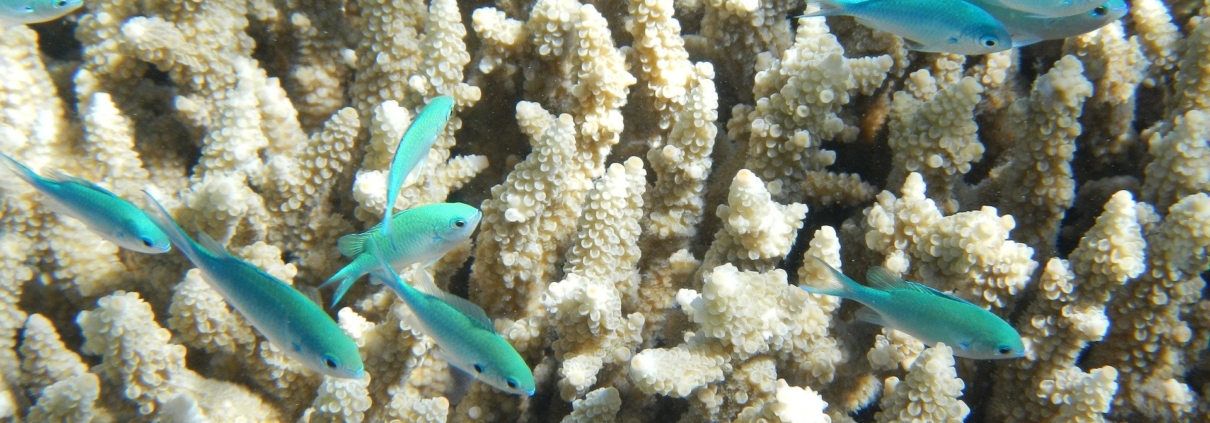Corals Are Animals
Those beautiful reef landscapes are not what they seem to be. The very cool—but somewhat weird—corals that many of us view as plants, are in fact, not plants! Coral gardens are not the same as underwater flower gardens because corals are animals and can’t photosynthesize. Corals are more like the “Bob the Builders” of reefs. They are tiny animals grouped together in calcium carbonate structures they make themselves. The reason many people think they are plants is because they act in a similar way. They do not seem to eat anything and are found in sunny, shallow waters. Plus plants are the basis of most ecosystems on land. If you take a closer look you will see corals are made of thousands of little polyps, each polyp is an individual animal.

Coral polyps (Goniopora sp.) Sharm El Sheikh south Sinai Egypt, Red Sea. Credit: Javier Sandoval.
What is a polyp?
Corals are a type of invertebrate animal in the phylum Cnidaria. This means they are part of an animal group that does not have an internal skeletal system. Other animals in the same phylum are anemones and jellyfish but corals are the only ones who make their own exoskeleton (external calcium carbonate structures). Entire reef systems and white sandy beaches are all possible thanks to corals!
Corals live in a mutualistic relationship—a win-win situation—with dinoflagellates, which are a type of phytoplankton, which, in turn is a type of single-celled plant. Corals act as a safe home for the dinoflagellates, and in return the dinoflagellates, called zooxanthellae, produce glucose (sugar) through photosynthesis, which the coral can “eat”. Both parties benefit from this relationship and as mutualistic partners, they rely on each other to thrive.
Corals can lose their dinoflagellates and this is called coral bleaching. Learn more about coral bleaching in our next blog post.
Author:
Layla Olefs
Sustainability Manager and Co-Founder of White Green Blue.
Layla is on a mission to create positive impact and to spread awareness about our beautiful home. As a marine conservationist and PADI Dive Master her passion is the marine world and, of course, mangroves. She is the author of our Ecology and Culture blog series. Stephen Olefs, our Community Development Coordinator, is taking the lead in our Green Tech blog series.









